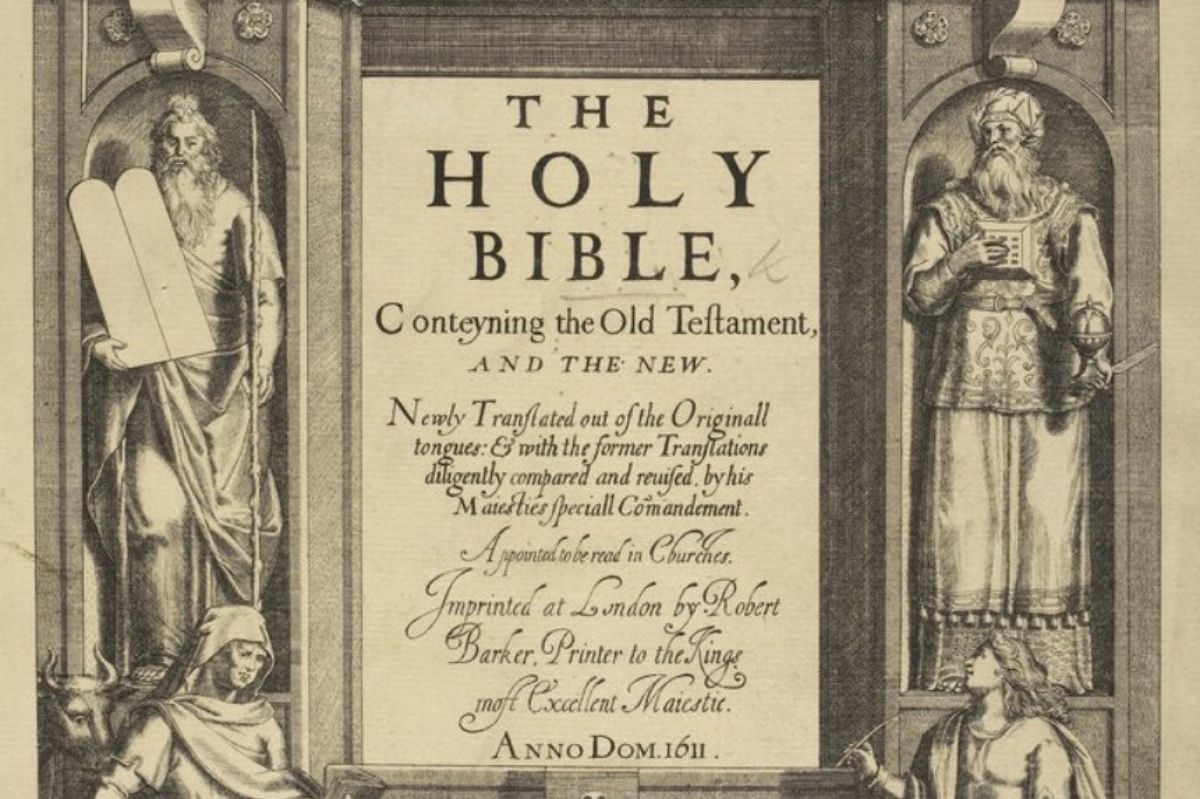Welcome to Harmonia Uncut, the podcast that brings you early music performances from past times. I’m Wendy Gillespie, inviting you to join me for a trip to St. Luke in the Fields Church in New York City to hear a concert given on October 6, 2016 by the venerable viol consort Parthenia, who are joined by bass-baritone Dashon Burton for a concert entitled “King James and his Bible: a musical portrait.”
The four members of Parthenia have been playing together since 1998, and 2020 marks the twentieth season of their New York City concert series. Parthenia have performed all over the North America and Europe, bringing their ravishing sound to both old music and new, freshly commissioned repertory with a finely honed sense of ensemble. This program is no exception, featuring a piece by Tawny Olson that is a setting of a spiritual poem by Yale philosophy professor John Hare.
But of course we are Harmonia Uncut, so we turn our ears to the early repertory. Less than a year after he acceded the throne left vacant by the death of Elizabeth I, James put together a commission to make a new “authorized” translation of the Bible, which came to fruition in 1611. Some of its text was drawn from the earlier Tyndale Bible, such as the one set by Thomas Tallis much earlier, whose words are from the Gospel of St. John:
If ye love Me, keep My commandments.
And I will pray the Father, and He will give you another
Comforter, that He may abide with you for ever, even
the Spirit of Truth. Amen
Even though Parthenia play this piece instrumentally, you can very nearly hear the words in their phrasing of this ravishingly beautiful setting.
Music: IF YE LOVE ME
Parthenia played Thomas Tallis’ setting of the words of St. John. This expressive weave of sound wraps itself around singers and, as you can imagine, that wrapping can vary enormously. The range and character of the voice in question is one of the fascinating challenges to which Parthenia love to rise.
Listen as Dashon Burton sings Thomas Tomkins’ anthem “Thou art my king, oh God,” a setting of Psalm 44 as it appears in the King James Bible. Typically, this piece would be performed by five singers, with the viols heard prominently only when they accompany the solo voice. The viols of Parthenia can sing with the best of them, so in this case they are the singers, but fear not, we hear all the words of the psalm from Dashon Burton.
Music: THOU ART MY KING
[Applause]
Thomas Tomkins must have had a very good low voice or two in his choir! That was his setting of verses 6-9 of Psalm 44, published in 1668. Whilst the viols are not tied to a specific pitch level, the solo voice part descends very low and has a wide range. Did you hear the text painting of “we will tread them down that will rise up against us?”
Viols, of course, completely get melancholy. A composer can write low parts for the viols and introduce flats to silence many of their open strings, and the sound magically darkens Alfonso Ferrabosco Junior’s Fantasia and his motet “Fuerunt mihi lacrimae,” which sets the words of Psalm 42, Verse 3, which in the King James Bible is translated, “My tears have been my meat day and night: while they continually say unto me, Where is thy God?” (How intriguing that it seems to be only in the KJ Bible that the Latin word “panis,” which literally means “bread,” is translated “meat!”)
Music: Fantasia (3:47); Fuerunt mihi (2:44)
[Parthenia and performed an instrumental fantasia by Alfonso Ferrabosco Junior, then Dashon Burton Joined them for that same composer’s] “Fuerunt mihi lacrimae,” from Psalm 42 in the King James Bible.
But let us be sure to end on an optimistic note with William Byrd’s “Rejoice, rejoice,” written for the first Queen Elizabeth I’s Accession Day celebrations of 1586, the 28th year of her reign. This piece is puzzling in that, as you will hear, the Amen appears twice. Never mind - its joyful text works jubilantly with the solo [voice] part transposed down an octave to suit the voice of Dashon Burton:
Music: Rejoice, rejoice (4:55)
Dashon Burton joined Parthenia at St. Luke in the Fields Church in New York City back in October of 2016 for a concert entitled “King James and his Bible: a musical portrait.”
Thank you so much to Parthenia for sharing their beautiful program with us.
Their twentieth anniversary season continues on December 3 with a webcast of their popular English Christmas program called “As it fell on a holie eve,” with Julianne Baird, soprano, from the 2012 Twelfth Night Festival at Trinity Wall Street Church in New York City. In February they are hoping to make some in-person tickets available for their third concert, when they will be live once again at St. Luke in the Fields for a program entitled “A Reliquary for William Blake.” Onward and upward, Parthenia!
We’d be interested to hear your thoughts about this podcast. You can find Harmonia on Facebook, or leave a comment or question any time by visiting harmonia early music dot org. This has been Harmonia Uncut, and I’m Wendy Gillespie, thanks so much for joining me.










